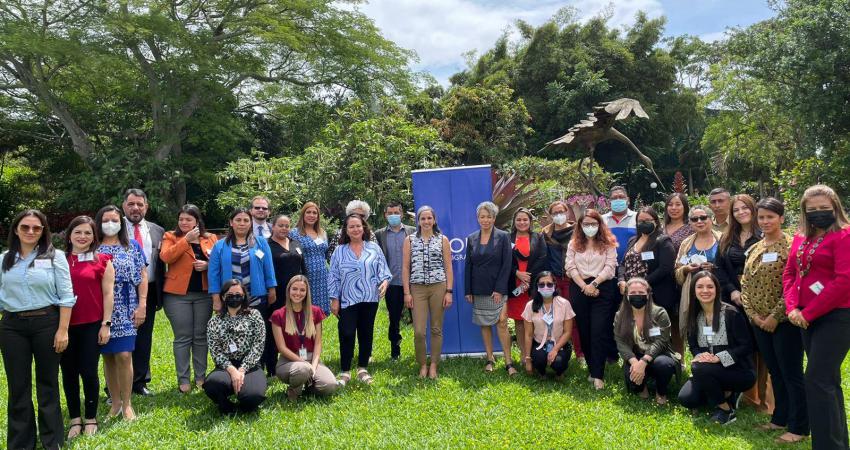OIM strengthens capacities in 7 countries to protect and assist migrants

The International Organization for Migration (IOM) trained officials from 7 countries on protection and assistance for migrants vulnerable to violence, exploitation and abuse. The activity was attended by representatives of migration institutes or directorates, consulates and entities responsible for the shelter and protection systems of Mexico, Guatemala, Honduras, El Salvador, the Dominican Republic, Panama and Costa Rica.
The training, which took place from May 24 to 26 in San José (Costa Rica), is especially relevant for Central America, as it is part of the route to Mexico and the United States and has a high presence and transit of highly vulnerable migrants.
Between June 2020 and July 2021 almost 250 thousand people in irregular transit and more than 10 thousand "stranded" in border towns in Costa Rica, El Salvador, Honduras, Guatemala and southern Mexico were identified. Of these people, 51,000 were children and adolescents, of whom more than 4,000 were unaccompanied[1]. These people often face different forms of violence, exploitation and abuse, including human trafficking, labor exploitation and sexual violence at different stages of their migratory route.
The training not only sought to expose and describe the mechanisms related to protection and assistance for vulnerable migrants, but also to strengthen the capacities of the participants to identify and close the gaps in the response within the context where they work.
It also sought to provide a space for reflection on the practices, challenges and opportunities related to case management and referral mechanisms, as well as to provide tools for participants to facilitate replication of the training in their countries of origin. The activity was divided into seven sessions, in which assistance mechanisms from the family, community and structural levels were also reviewed.
This space was developed from the provisions of the IOM Handbook on Protection and Assistance for Migrants Vulnerable to Violence, Exploitation and Abuse, created in 2019 in the framework of the Global Action to Combat Trafficking in Persons and Smuggling of Migrants, in order to contribute to the identification of vulnerabilities, as well as the planning of an articulated response to the increase in risk factors.
"We make available this guide, created by IOM, to determine the vulnerabilities of migrants, linking lessons learned from interventions at the individual, community, family and structural levels, significantly expanding the way we think about vulnerabilities, but also the resilience that can come from all of these levels," explained Michele Klein-Solomon, IOM regional director for Central America, North America and the Caribbean. "There is always going to be irregular migration in the region; it is a structural aspect, so we are committed to the promotion of regular, orderly and safe migration by putting people's rights at the center."
IOM developed this training within the framework of the Western Hemisphere Program, funded by the U.S. Department of State Bureau of Population, Refugees and Migration.
